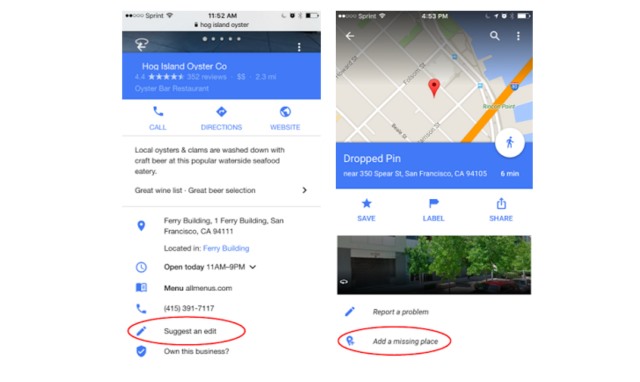
New platform aims to cut mobile ad waste
There's a famous quote from 19th century British soap magnate Lord Leverhulme which goes, "Half the money I spend on advertising is wasted, and the problem is I don't know which half".
Despite the array of technology and analytics tools available today, it’s still true that a good deal of advertising spend is simply thrown into the dark. Real-time mobile advertising platform Smaato is aiming to cut waste with the launch of its Smaato Demand Platform (SDX) that allows more accurate targeting of ads.

Republican National Convention breaks records for data usage
It's an eventful week with the Republican National Convention (RNC) making all sorts of news. There have been a couple of bumps in the road during the show, but mostly it has gone off fairly smoothly. It certainly has not lacked for spectacle.
However behind the scenes much more is happening. Everyone attending the event is online and that leads to some major headaches for the organizers who are making an effort to ensure that the experience is as seamless as possible.

Too strict mobile security can frustrate employees
Executives are dancing on a thin line between state-of-the-art security for their company, and just overdoing it, frustrating their employees. This is according to a new report by BlackBerry Limited, which says that, as executives fail to implement the highest levels of security possible, they’re opening up their business to various vulnerabilities, mostly in the mobile segment.
There’s an interesting survey following it -- 82 percent of executives said mobile security precautions cause "at least some frustration among employees" and is even being lined with hindered productivity. Overall, 44 percent believe too much security prevents people from doing their job.

Now it's easier than ever to submit changes and additions to Google Maps
Google has done a great job of mapping the globe down to street level, but it's not perfect. You've almost certainly encountered errors and omissions on Google Maps, and starting today the company is making it easy to point out missing and incorrect data from the comfort of your mobile.
Crowdsourcing the collecting of map data is a great way to ensure that Google Maps is kept constantly up to date. It means that as businesses close down, change names, or open up, users can submit feedback to Google straight away so the information is available to everyone as quickly as possible.

Google A4A will speed up the web by making ads far more efficient
These days, the web is all about advertising. Whatever type of site you visit -- news, entertainment, music, or whatever -- you are almost certain to encounter ads. Many people turn to ad blockers not just because ads can be irritating (and something of a privacy concern), but also because they can dramatically slow down browsing.
We've already heard about Google's Accelerated Mobile Pages project which looks to speed up the web for mobile users. But AMP is about more than just pushing page content to handsets quicker. Google has also developed a way to dramatically speed up the appearance of ads: AMP for ads, or A4A.

LogMeOnce adds features to track and wipe mobile devices
The increasing use of mobile devices and spread of BYOD means that there’s a risk of data falling into the wrong hands if a device is lost or stolen.
Mobile identity and password management company LogMeOnce is adding new features to its app making it simpler to manage, track and wipe personal and business data from devices.

New partnership extends reach of beacon advertising
Beacon advertising is becoming increasingly popular as a means of targeting consumers in specific locations with relevant messages.
It's now set to spread further as Freckle, the world's largest beacon technology company, announces a partnership with one of North America's largest mobile platform companies for publishers and media companies AirKast.

Google adds Three to Project Fi
Google wants to make Project Fi an attractive plan not only in the US but also internationally as today it announces that it is expanding the coverage of its service in more than a dozen additional countries. Project Fi now provides high-speed data access in nearly all the places visited by Americans across the globe, claims Google.
To cover "over 97 percent of the places Americans travel internationally", Google is adding Three, which is present in Austria, Denmark, Hong Kong, Indonesia, Ireland, Italy, Sweden and UK, to the list of mobile operators that work with Project Fi.

Skype for Business use on mobile expected to double by 2018
While Skype remains the most popular VoIP tool, the Skype for Business mobile client has been dogged by ongoing quality and technical issues that have slowed its rollout.
A new survey by Unify Square and Osterman Research finds that 30 percent of IT teams' total time spent troubleshooting the Skype platform is devoted to the mobile client.

Microsoft Finnished!
As gifts to headline writers go, Microsoft's acquisition of Finland's Nokia mobile phone company keeps on giving. We already did the Finnish line gag when the deal to buy Nokia was announced in 2014.
Today the company confirmed that as part of the shedding of 1,850 jobs from its smartphone business, announced back in May, it's closing its Nordic subsidiary. This will lead to the loss of 1,350 jobs in Finland.

Qualcomm unveils the processor that will power the next flagship smartphones
Qualcomm is well represented in the current generation of flagship smartphones. Its mighty Snapdragon 820 processor powers the most hotly anticipated high-end handsets that we have seen in 2016 so far, including HTC 10, LG G5, Samsung Galaxy S7 and Xiaomi Mi 5. But, for the next flagships to come in the second half of the year, the company is providing an even more powerful chip.
Qualcomm's latest high-end processor is called Snapdragon 821 and, as its name suggests, it is an evolution of the Snapdragon 820. The main improvements are "faster speed, improved power savings, and greater application performance". Let's take a closer look at it.

At least one mobile device in every large enterprise has a malware infection
A new report focusing on malware in the enterprise, finds that large organizations (those with more than 200 iOS or Android mobile devices) are almost guaranteed to have at least one malware-infected device.
The report, by mobile threat defense specialist Skycure finds that four percent of all mobile devices have malware installed, regardless of whether they are managed by an enterprise or an individual.

Customers penalize businesses with a bad mobile experience
Think mobile experience isn’t important to the success of your business? Think again. A massive 85 percent of people are unlikely to do business with a company following a bad mobile experience, according to the results of a new study from LogMeIn and research firm Vanson Bourne.
The study also revealed that businesses are currently falling short in delivering satisfying mobile experiences for their customers, with the number of respondents happy with their last mobile engagement with a business dropping from 59 percent in 2015 to 52 percent in 2016.

How mobile device management could be invading your privacy
Many companies now turn to mobile device management (MDM) to control and monitor their employees' mobile use. But a new study from data protection company Bitglass reveals that MDM itself represents a threat to privacy.
Bitglass researchers configured MDM software to route mobile data traffic through a corporate proxy and installed corporate-issued certificates on employee devices to decrypt SSL traffic. This, a common configuration in enterprise MDM deployments for inspecting traffic for malware, enabled researchers to see the contents of employees' personal email inboxes, social networking accounts and even banking information.

Lookout uses network layer security to expand mobile protection
The shift towards a mobile and cloud focused workplace has brought a great deal of flexibility but it's also added new risks. How do you protect data when employees can access it at any time and from any device?
Lookout, a specialist in securing mobility, has expanded expanded Mobile Threat Protection with the introduction of Network Protection, an automatic on-device analysis of network connections to defend against man-in-the-middle attacks and ensure information is being securely transmitted.
